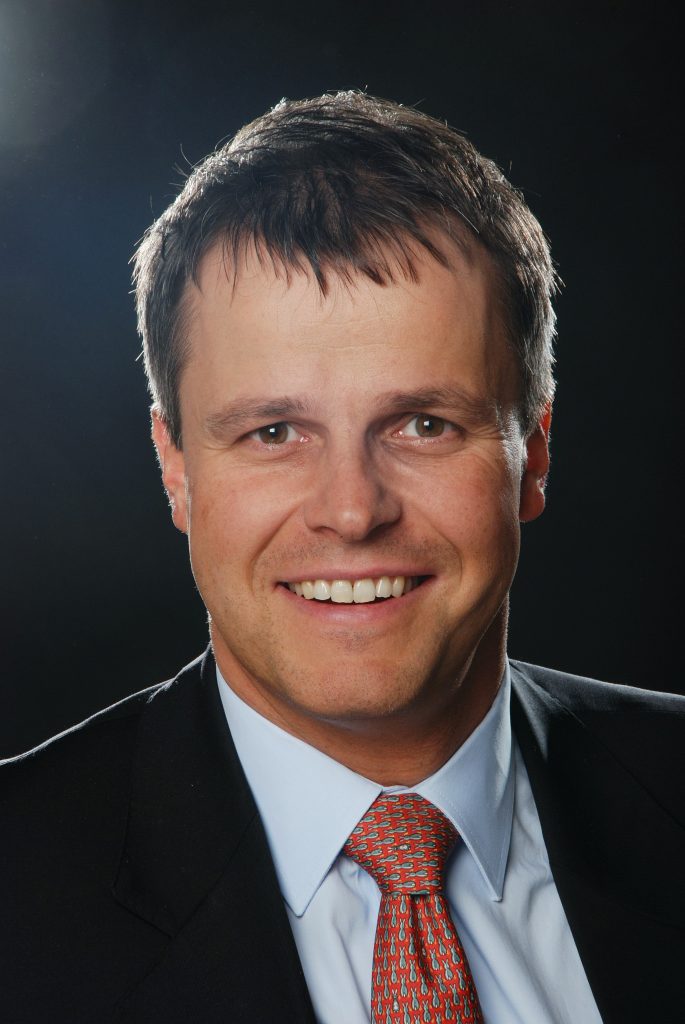“Time dwells long enough for those who wish to use it” (Leonardo da Vinci). Markus Hill speaks for FONDSBOUTIQUEN.DE with Martin Friedrich, Lansdowne Partners Austria GmbH, about the valuation of stock investments in the current economic situation, risk management, stock market psychology and about supposed monsters on the capital market in corona times.
Hill: What is going on with the stock market? Prices are shooting up into the sky, the DAX is already back at 13,000, aren’t we facing the worst economic slump since the World War?
Friedrich: Yes, this topic has been on our minds for a while now. There are two ways to explain the share price development we have seen. Firstly, it is not unusual that a recession provides a buying opportunity – recessionary periods have always been the best time to buy stocks. This is because shares are anticipatory instruments. What matters most for the price trend is whether the economy will improve or deteriorate in the future. The status quo is generally already discounted.
We have, for example, examined all US recessions since 1970 and analyzed how many months before the end of the GDP contraction equities have formed a bottom. Generally between two and five months before the end of a recession, share prices are starting to pick up again. The only thing that is required is SOME light at the end of the tunnel. To be clear: anyone who waits until the newspapers write about good news has usually already missed the rally.

Hill: What would be the second way to check plausibility?
Friedrich: : So far, we have only talked about the direction, but we also have to think about the level. A small digression into company valuation helps here: Just as with an individual share, an entire share index, too, can be understood as the net present value of all future cash flows. This value is determined by two factors: how high will the payments be? And at what rate do we discount? So you can build a dividend discount model for an entire stock market, and that’s exactly what we have done. What we learned from this exercise is that 86 – 87% of the total value of shares are cash flows that are more than five years in the future. This is because, unlike bonds, shares do not have an expiry date. The assumption is that listed companies live forever. Logically, this means that even the theoretical elimination of all (!) corporate profits for the next five years should lead to a stock market slump of no more than 13 – 14 %.
Hill: That is surprisingly little compared to the 36 % that the DAX lost from the beginning of the year until mid-March. Why do you think the shares have fallen so much?
Friedrich: Well, I was talking about two factors. In addition to corporate profits, interest rates play a major role in determining share valuations. The discounting of future cash flows is always more of an art than a science. It is common practice to divide the interest rate used into a risk-free component and a risk premium. And in a panic like the one we experienced in March, it is mainly the risk premium that is involved. It has just reached very high levels in the short term. With the bold intervention of the central banks and the truly broad-based fiscal policy initiatives, the risk premium then normalized from the third week of March onwards. In addition, the risk-free rate also dropped. In the USA, for example, 10-year treasuries are a full 1.3% lower than at the end of December, while 30-year treasuries are still 0.8% lower. Moreover, there are reasons to believe that the fall in interest rates could be semi-permanent.
Hill: Interesting, but if the risk premium can change so suddenly, don’t we have to assume that it will rise again? Given the rising number of cases, isn’t the next stock market crash inevitable?
Friedrich: Not necessarily. Of course, it would be crazy to rule out a correction. You can never do that. Nevertheless, I believe that we will not see the lows of March again. A correction of 5 – 10 % would probably even be an opportunity to buy shares. Why? It has a bit to do with psychology and, of course, with our understanding of the capital markets.
First of all, psychology: we humans get used to new situations, and the more we learn about the virus, the more it loses its terror. Surely, everyone has seen a horror movie: the monster is always the most frightening one second before it appears for the first time! With that in mind, even if case numbers rise and hospitals fill up again, we need to differentiate between the economic influence of the virus itself and fear of the virus. And it is fear that has by far the greater leverage – on consumer behaviour as a direct fundamental factor, but also on the risk premium as it relates to stock price valuation!
The second reason why a renewed bear market is likely to be less severe is the positioning of market participants. At the beginning of this year, most investors were overinvested in risk assets. And then they all had to sell at the same time. Today, the situation is different. Many investors have missed the rally and are under pressure to get invested again. There are hard figures for that. The Merrill Lynch survey of fund managers, for example, shows that professionals are heavily overweight in time deposits and underweight in equities. The survey of the American Association of Individual Investors (AAII) also continues to show a strong overhang in bears versus bulls. This means that the technical starting position today is actually equity-friendly.
Hill: What could disturb this positive picture?
Friedrich: Well, a lot. If we stay with the film analogy, a new monster could appear on the stock market horizon at any time! After all, we have plenty of geopolitical tensions: China and the USA see themselves more and more as antagonists in the fight for economic and political hegemony, and against this background, a war-like conflict is perhaps only a question of time. After all, one does not know what Trump might be capable of if he comes under even greater pressure in the election campaign. Even after the US elections, we cannot sit back: if the Democrats win, there is reason to expect a significant increase in corporate taxation. Elsewhere, Brexit is still unsolved, and North Korea is still untamed. We won’t be able to waive the risk premium in equity valuations for a while.
On the other hand, I remind you that there could also be On the other hand, I remind you that there could also be positive surprises. First and foremost, a medical breakthrough in the treatment and/or vaccine development. That would not be far-fetched at all, given the energies being put into this project. But also, think about how fiscal policy initiatives are suddenly acceptable today. That represents a major paradigm shift: some economists have urged for years that, in addition to growth-oriented structural reforms, fiscal policy may help to break out of the vicious circle of ever-lower growth and ever higher debt. However, our increasingly populist politicians never wanted to hear anything about this. Thanks to COVID-19, things are suddenly different now.
Hill: What are your longer-term expectations?
Friedrich: In our strategic projections, we expect returns of around 5-6% p.a. for equities, and between 0.5% and 1.0% for bonds. For a typical balanced mandate, the result is a modest 3% p.a. Higher returns are possible, but also entail additional risk. Exciting areas to pursue are, for example, emerging markets or private equity.
Hill: How is your portfolio currently positioned?
Friedrich: The Lansdowne Endowment Fund is currently fully invested and holds about 40% in equities and listed real assets. Tactically, we maintain a slight overweight in equities, absolute return strategies, and cat-bonds, which we finance from underweights in bonds and time deposits.
Hill: Thank you very much for the interview.
Martin Friedrich is the portfolio manager of the Lansdowne Endowment Fund. He joined Lansdowne Partners Austria in January 2019 from HQ Trust, one of the largest independent multi-family offices in Germany. Mr. Friedrich has been employed there since 2009, most recently as Head of Capital Market Analysis and Co-Chief Investment Officer. He also managed customer portfolios and was responsible for the investment process of LIQID, a Fintech company in Berlin. He was also active in the Wigmore Association. Wigmore is an innovative global cooperation of eight different single and multi-family offices.
LINK to Lansdowne Partners Austria GmbH: https://www.lansdownepartners.com/austria
Source: www.institutional-investment.de
Photo: www.pixabay.com

One thought on “FUND BOUTIQUES & PRIVATE LABEL FUNDS: Stock Valuation, Corona & “Horror Movies” (Interview, Martin Friedrich, Lansdowne Partners Austria GmbH)”